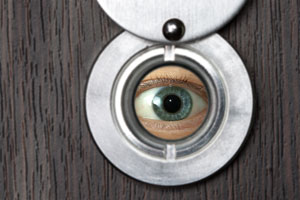American courts have been slow to recognize the importance of expert opinions when a criminal charge hinges on eyewitness testimony. Until recently, judges tended to rule that juries understand the possibility of mistaken eyewitness identifications and that experts had nothing meaningful to add to jurors’ knowledge.
Mistaken eyewitness identifications are the leading cause of wrongful convictions of innocent defendants. As DNA testing continues to expose wrongful convictions, courts are increasingly acknowledging the reality that jurors really don’t understand how easily an eyewitness can make a mistaken identification. Exonerations, coupled with published studies that explain why eyewitnesses so often get it wrong, have compelled courts to recognize that a defendant who wants to call an eyewitness identification expert probably won’t receive a fair trial unless the expert is permitted to testify.
Illinois Opens the Door
The Illinois Supreme Court opened the door to testimony by eyewitness identification experts in a ruling earlier this year. In an appeal from a murder conviction, the court agreed that the defendant, Eduardo Lerma, was denied a fair trial when the trial judge refused to allow his expert witness to testify.
The only evidence against Lerma consisted of eyewitness identification testimony. The key witness testified that she was standing on the unlit steps of a home near midnight when she saw a man dressed in a black hooded sweatshirt draw a gun and shoot the victim. The victim then fell on top of the witness, who heard the victim say “Lucky shot me.” The defendant was known in the neighborhood as “Lucky.”
The eyewitness had never met the defendant but had occasionally seen him on his porch across the street. Depending on whether her trial testimony or her prior grand jury testimony is to be believed, she only saw the defendant on his porch once or twice, or as many as ten times. She had never spoken to him and had not seen him in six months to a year prior to the shooting.
The Proposed Expert Testimony
The defendant wanted to call a psychologist as an expert witness to testify about several facts that typical jurors do not understand. Those facts included: an eyewitness’ confidence in her identification does not correlate with the accuracy of the identification; the stress of witnessing a violent crime, the presence of a gun, nighttime viewing, and the passage of time all affect an eyewitness’ ability to make an accurate identification; cross-racial identifications are less reliable than same-race identifications; and eyewitness identifications are influenced by suggestion (such as “Lucky shot me”).
The expert acknowledged that identifications are more reliable when the eyewitness knows the person she is identifying. For that reason, the trial judge excluded the expert’s testimony on the ground that it wasn’t helpful to the jury. The judge also remarked that identification experts were simply “the latest trend.” The defense asked the judge to reconsider, offering the opinion of another psychologist that acquaintance with the person being identified does not necessarily increase the reliability of the identification. The trial judge refused to permit any expert testimony.
The Supreme Court’s Ruling
The Illinois Supreme Court decided that the expert’s testimony should have been admitted. The court recognized that in the 25 years that had passed since it last ruled on the admissibility of expert testimony concerning eyewitness identification, a growing body of relevant research had produced “a dramatic shift in the legal landscape,” as courts across the country have come to regard expert testimony as both reliable and necessary to a fair trial when the defendant’s identification is in doubt.
The court noted that most of the factors that render an identification questionable were present in Lerma’s case. The court also concluded that whether or not eyewitness identification is more reliable when the witness knows the person she identifies, it was not fair to say that the eyewitness who identified Lerma actually knew him. Seeing a person from a distance a few times is not the same as knowing a person, and the witness expressly testified that she did not know Lerma. Expert testimony was therefore an essential means of explaining to the jury why the eyewitness identification might have been mistaken.
The Impact of the Lerma Decision
The Chicago Tribune points out that eyewitness identification experts have made a difference in Illinois trials. Marco Lopez was recently acquitted of murdering a father and son after an expert witness explained why an eyewitness identification could not be trusted.
The case against Lopez rested on eyewitness testimony. The murder weapon was never found and Lopez’ DNA was not present at the crime scene. The police questioned and released a different suspect who may have committed the crime. Two people who told the police that they saw Marco with a gun on the night of the murder changed their stories when they testified under oath.
The eyewitness testified that he saw Lopez walking away from the crime scene “from about 10 feet away through a glass door shortly after midnight.” The expert explained how poor lighting, the brief observation, and other factors cast doubt on an identification made under those conditions.
The Tribune article cites a number of wrongful convictions in Illinois that were based on mistaken identifications before the Lerma case opened the door to expert testimony. Now that jurors are being made aware of factors that make identifications doubtful, expert witnesses are helping to assure that fewer innocent defendants are convicted in Illinois courts.




